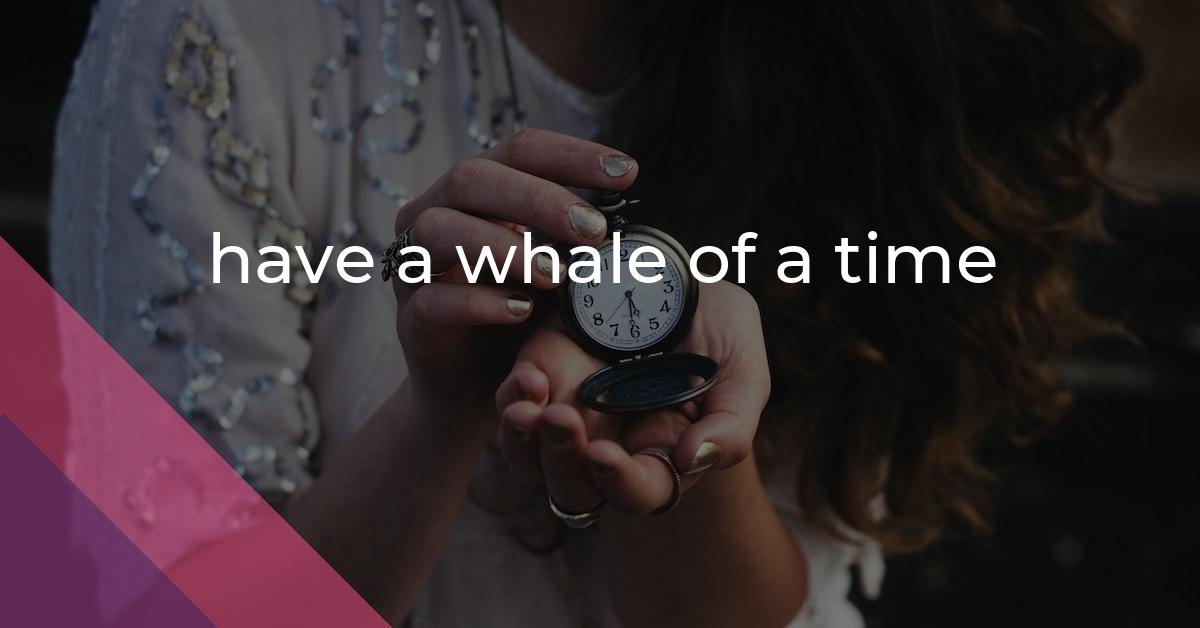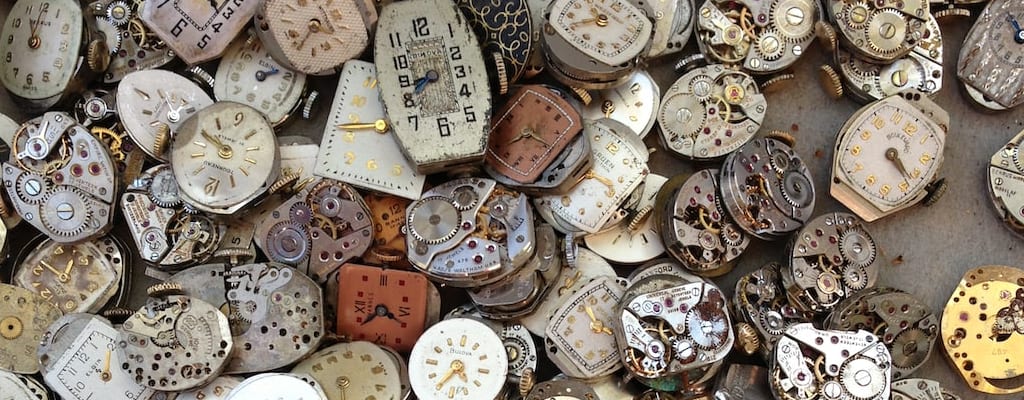have a whale of a time: Idiom Meaning and Origin
What does ‘have a whale of a time’ mean?
The idiom "have a whale of a time" means to enjoy oneself immensely or have a great time. It is often used to describe a very enjoyable and exciting experience.

Idiom Explorer
The idiom "in a big way" means to do something on a large scale, with great intensity or significance.
The idiom "hog heaven" refers to a state of extreme happiness, contentment, or satisfaction, usually as a result of indulging in one's favorite activities or pleasures.
The idiom "hit the jackpot" means to achieve a great success or obtain an unexpected, significant gain, often in a financial sense.
The idiom "hit it big" means to achieve great success or win a large amount of money, often unexpectedly or after a long period of hard work.
The idiom "high on the hog" means to live in a luxurious or extravagant manner, enjoying the best of everything. It originates from the idea that the choice cuts of meat, which are considered the best, come from the upper part of the pig.
"Have the world by the tail" means to be in a very fortunate and successful position, with everything going one's way.
The idiom "have one's hands full" means to be very busy or have a lot of work or responsibilities to deal with.
The idiom "have a lot of time for" means to have a great deal of respect or admiration for someone or something.
The idiom "have a laugh" means to find something amusing or entertaining and to enjoy a good laugh or joke.
Decoding the Magic
The idiom "have a whale of a time" is commonly used in informal English to express a great enjoyment or a very enjoyable experience. The phrase is believed to have originated in the early 20th century, and its exact origin is uncertain. While there is no definitive source to pinpoint the exact beginnings of this idiom, it has become a widely used expression over the years.
The word "whale" in this idiom is not used in its literal sense, referring to the marine mammal. Instead, it is used as a metaphor to convey the idea of something big, extraordinary, or remarkable. The phrase "have a whale of a time" suggests that the experience or enjoyment is of a significant magnitude or intensity.
It can be inferred that the idiom likely originated from the fascination and awe inspired by observing or interacting with whales. Whales are known for their immense size, majestic presence, and their ability to captivate and inspire wonder in humans. This awe and admiration may have influenced the development of the idiom, associating the notion of having a remarkable or extraordinary time with the idea of encountering a whale.
"Have a whale of a time" is a predominantly American English expression, widely used in both spoken and written language. It has gained popularity across various contexts, including casual conversations, storytelling, literature, and media. The idiom is commonly employed to share experiences of joy, fun, excitement, or simply to express satisfaction with a particular event or activity.
The related idiom "have a good time" is also commonly used to express enjoyment or a pleasurable experience. While "have a good time" is a more general expression, "have a whale of a time" adds a sense of grandeur or magnitude to the experience. It conveys the idea that the enjoyment or fun is exceptionally great, as if one were encountering a massive whale and having an unforgettable experience.
Similarly, the idiomatic phrase "have a ball" is another expression used to describe having a good time or an enjoyable experience. Like "have a whale of a time," "have a ball" conveys a sense of joy and excitement. It suggests that the experience is fun, lively, and filled with laughter, as if one were attending a ball or a lively social event.
Both "have a good time" and "have a ball" are related idiomatic expressions that share a common theme with "have a whale of a time." They all communicate the idea of enjoying oneself and having a pleasurable experience. However, "have a whale of a time" adds a unique touch of magnificence or grandeur to the enjoyment, making it sound particularly remarkable or extraordinary.
Due to its idiomatic nature, "have a whale of a time" may not be easily understood by non-native English speakers or those unfamiliar with the idiom's context. Without prior knowledge or exposure to the expression, its meaning might be lost or interpreted literally, leading to confusion. Therefore, it is crucial to consider the audience and context when using this idiom to ensure effective communication.
The idiom "have a whale of a time" is a metaphorical expression used to convey a great enjoyment or remarkable experience. Although its exact origin remains uncertain, it has become deeply ingrained in the English language, particularly in American English. This idiom reflects the human fascination with whales, symbolizing something of significant size or importance. As an idiomatic expression, it adds color and nuance to language, allowing individuals to vividly describe their experiences and emotions. When used appropriately, "have a whale of a time" can convey a sense of joy and excitement, enriching communication and expression.
Example usage
Examples of how the idiom "have a whale of a time" can be used in a sentence:
- I went to the amusement park with my friends and had a whale of a time on all the thrilling rides.
- During our vacation in Hawaii, we had a whale of a time exploring the beautiful beaches and snorkeling in the crystal-clear waters.
- At the concert last night, the band put on an incredible show, and the crowd had a whale of a time singing and dancing along.
More "Enjoyment" idioms



